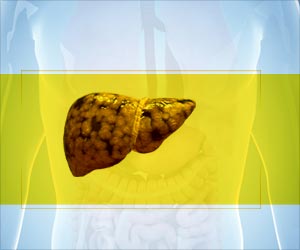A new study shows how resistance develops in patients taking ibrutinib, a new and highly effective drug for the treatment of chronic lymphocytic leukemia (CLL).

"Knowledge of these mutations is the first step in the development of drugs or drug combinations that might prevent or treat ibrutinib-resistant CLL," says co-principal investigator John C. Byrd, MD, director, division of hematology, and professor of medicine, of medicinal chemistry and of veterinary biosciences at Ohio State.
"Importantly, we saw none of these mutations in patients before they used ibrutinib," says Amy Johnson, PhD, associate professor of medicine in the division of hematology, an OSUCCC – James researcher and a co-principal investigator of the study.
Ibrutinib (Imbruvica®) works by permanently binding with a protein called Bruton's tyrosine kinase (BTK), a molecule that CLL cells need to grow and proliferate. BTK is one in a chain of proteins that relays growth signals from the surface of CLL cells to genes in the cell nucleus. By blocking BTK, ibrutinib halts the flow of these growth signals, and the CLL cells die (see illustration below).
The researchers found, however, that CLL cells can develop a mutation in BTK itself that weakens the ability of ibrutinib to bind with the protein. This leaves the drug less able to block BTK's action. The researchers also found two mutations in a protein that comes after BTK in the signaling pathway. Those mutations allow growth signals to travel the pathway even when BTK is blocked, rendering ibrutinib ineffective.
An estimated 15,700 new cases of CLL are expected in the United States in 2014, along with 4,600 deaths from the disease, which still has no cure.
Advertisement
"At this point, few patients taking ibrutinib have relapsed," says first author Jennifer Woyach, MD, assistant professor in the division of hematology and an OSUCCC – James researcher. "But as more patients use the drug, it becomes more important to learn how resistance occurs and to have effective alternative therapies for patients who need them. And as other irreversible kinase inhibitors are developed for key signaling pathways in cancer, it will important to learn if this is a general pattern of resistance," she says
Advertisement
- Ibrutinib resistance is due at least in part to a cysteine-to-serine mutation in BTK at the ibrutinib binding site and to mutations in a protein called PLC gamma 2;
- Patients with lymphocytosis, which is an increase in the number of lymphocytes in the blood, showed no evidence of the resistance mutations;
- The risk of relapse may be greatest for cases of CLL that show greater genomic instability, such as those with deletions in chromosomes 17 and 11.
Source-Eurekalert














